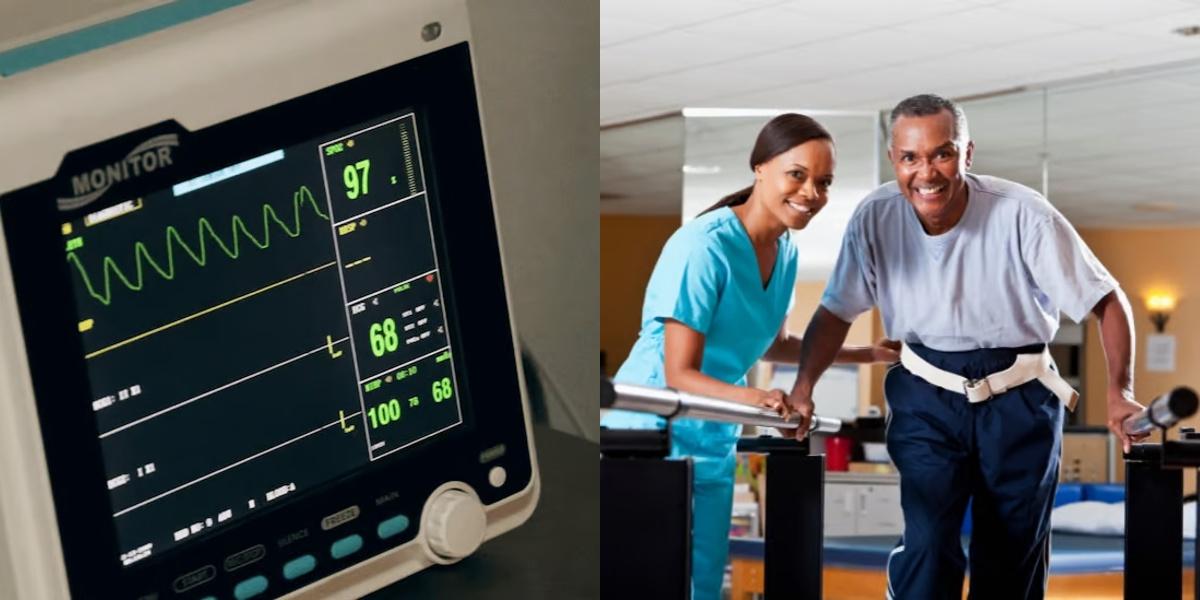EKG vs Physical Therapy Technician

Key Points:
- EKG Technicians operate medical equipment to monitor heart activity, while Physical Therapy Technicians assist physical therapists in providing patient care.
- EKG Technicians typically earn a higher average salary compared to Physical Therapy Technicians.
- EKG Technician training can be completed through online or in-person programs, while Physical Therapy Technician training is usually done in-person.
- EKG Technician training is generally shorter and less expensive than the training required for Physical Therapy Technicians.
Healthcare is a rapidly growing field, and with the increasing demand for skilled professionals, it's important to understand the different career paths available. EKG and physical therapy technicians are two such paths that offer rewarding opportunities for those interested in patient care. While both roles involve working closely with patients, the specific responsibilities and training required for each position are distinct. Let's take a closer look at what it means to be an EKG technician and a physical therapy technician.
EKG vs Physical Therapy Technician: Education and Training
EKG Technician:
- Most EKG technician programs can be completed in less than a year.
- Programs typically include coursework in anatomy, physiology, medical terminology, and EKG interpretation.
- Hands-on training is a crucial component of EKG technician programs, allowing students to practice operating EKG machines and performing tests.
- Certification is not always required, but many employers prefer candidates who hold professional certifications, such as Certified Cardiographic Technician (CCT) or Certified EKG Technician (CET).
Physical Therapy Technician:
- Physical therapy technician programs typically take around one year to complete.
- Coursework usually covers topics such as anatomy, kinesiology, therapeutic exercises, and patient care.
- Hands-on training is a fundamental part of physical therapy technician programs, providing students with practical experience in assisting patients and implementing treatment plans.
- Certification is not mandatory, but some states may require licensure or certification to practice as a physical therapy technician.
EKG vs Physical Therapy Technician: Career Outlook and Salary
EKG Technician:
- The demand for EKG technicians is expected to grow at a steady pace due to an aging population and an increased focus on heart health.
- According to the Bureau of Labor Statistics, the median annual wage for cardiovascular technicians, including EKG technicians, was $58,730 as of May 2020.
- Job prospects for EKG technicians are generally favorable, with opportunities available in hospitals, clinics, and diagnostic centers.
Physical Therapy Technician:
- The demand for physical therapy technicians is projected to grow rapidly, driven by an aging population and the need for rehabilitation services.
- The Bureau of Labor Statistics reports that the median annual wage for physical therapist aides, which includes physical therapy technicians, was $28,080 as of May 2020.
- Job prospects for physical therapy technicians are expected to be excellent, with opportunities in hospitals, rehabilitation centers, and private practices.
Final Thoughts
While both EKG and physical therapy technicians play vital roles in the healthcare field, they have distinct responsibilities and training requirements. EKG technicians focus on monitoring heart health, while physical therapy technicians assist patients in their rehabilitation and recovery process. The educational paths for each career differ, with EKG technician programs typically taking less time to complete. However, both careers offer rewarding opportunities for those interested in patient care and making a difference in people's lives. Whether you choose to pursue a career as an EKG technician or a physical therapy technician, you can rest assured knowing that you will be playing a crucial role in improving the health and well-being of others.
Explore Dreambound's programs, conveniently offered in multiple locations. Learn more about these two vocations by visiting:

Pia Yapjoco is part of the school growth and sales team at Dreambound. She helps facilitate school partnerships that expand educational opportunities for aspiring students in allied health and other trades. Beyond work, she curates her pup's Instagram, hunts for hidden coffee gems, and escapes into cozy gaming.




